12 Hidden Costs When Buying a Home

When budgeting for a new home, many buyers focus heavily on the purchase price and down payment—but there are numerous hidden costs that, if unaccounted for, can strain your finances. Planning ahead for these extra expenses can make your home buying process smoother and more secure. Below are twelve often-overlooked costs every buyer should include in their budget:
1. Home Inspection Fee
A home inspection is one of the most critical steps before finalizing a home purchase. Because sellers don’t always provide perfect disclosures, a professional inspection reveals structural issues, leaks, electrical problems, and potential risks you might not notice. The fee depends on the size and age of the property. Paying for this inspection ahead of time is a small price compared to discovering expensive issues after closing.
2. Appraisal Fee
Lenders often require an independent appraisal to confirm that the home’s value justifies the mortgage amount. The appraisal is performed by a certified appraiser who assesses condition, comparable sales, and local market dynamics. Buyers typically pay this fee up front. If the appraisal falls below the purchase price, you may need to renegotiate or bring in additional funds.
3. Legal Fees and Disbursements
You will need a real estate attorney or notary to review contracts, perform title searches, handle paperwork, and register the property. These legal services come with fees and “disbursements”—miscellaneous costs for searches, courier services, registration, and administrative work. Legal costs vary by region and complexity of the transaction, so it’s wise to get estimates early.
4. Land Transfer Tax (or Property Transfer Tax)
When a property changes hands, the provincial and/or municipal governments often levy a land transfer tax or property transfer tax. This cost is calculated as a percentage of the purchase price and is payable at closing. Depending on your jurisdiction, this can be a significant expense. First-time buyer rebates may apply in some regions—but you still should plan to cover the full cost initially.
5. Title Insurance
Title insurance protects you against defects in the title—such as undisclosed liens, registration errors, or challenges to ownership. Lenders often require it. While the cost is relatively small compared to the home price, it’s an additional closing expense many buyers forget to include.
6. Land Survey or Boundary Survey
If a recent survey isn’t available, your lender or lawyer may require a land survey to confirm property boundaries, easements, and encroachments. Survey costs vary based on property size, terrain, and complexity. Adding a survey ensures certainty over whether features like fences or structures fall within your legal property lines.
7. Mortgage Default Insurance or Mortgage Insurance
If your down payment is below a threshold (often less than 20%), lenders require mortgage default insurance. This protects the lender in case of default but is paid by the buyer. This cost can be paid upfront or rolled into the mortgage payments, increasing your long-term debt load. Be sure to factor this into your calculations.
8. Sales Tax / GST / HST (Especially for New Builds)
When purchasing a newly constructed home, you may owe federal and provincial sales tax (GST/HST) on the property or its improvements. Depending on where you live, the rate can be 5% to 15% (or more) of the property value. Sometimes there are rebates or exemptions—but don’t assume them until confirmed. Budget for this in your purchase plan.
9. Home Insurance Premiums
Your lender will require proof of homeowner’s insurance before closing. Insurance costs depend on your location, home features, coverage levels, and risk factors like flood, fire, or theft. Be sure to get quotes in advance and include this in your ongoing costs.
10. Moving Costs, Hook-up Fees & Utility Transfers
Moving itself is a real and immediate cost—hire movers, rent trucks, or pay for storage. Additionally, utility companies often charge connection or transfer fees (electricity, water, gas, internet). You may also need to pay deposits for utility accounts. These add up and should be included in your moving budget.
11. Repairs, Renovations & Immediate Maintenance
Even a well-inspected home can require immediate updates. You may want or need to replace flooring, repaint walls, upgrade fixtures, or perform minor structural fixes. Budgeting for a “move-in repair fund” helps you avoid financial shock once you own the home.
12. Annual Carrying Costs: Taxes, Utilities, HOA/Strata Fees
Once you own the home, constant costs come in:
• Property taxes, based on your home’s assessed value.
• Utilities (electricity, gas, water, sewer) rising with consumption.
• Homeowners Association (HOA) or strata fees if your property is part of a development.
• Ongoing maintenance costs like landscaping, snow removal, HVAC servicing, repairs, etc.
Even before your first mortgage payment, these recurring costs can be significant—and many buyers underestimate them.
Planning for the Full Cost of Buying
When you add all these hidden costs to the base purchase price and down payment, many experts suggest budgeting an extra 1.5% to 4% of the home’s price just for closing and extra expenses. In some locations, that number could be even higher. That’s why setting aside more than just the down payment is essential.
Also, talk to experienced real estate professionals (agents, lenders, lawyers) early in your process. Ask them to prepare a full estimate of “all-in” costs, so you’re never caught off guard.
Conclusion
Buying a home is a major milestone—but it’s not just about the sticker price. Awareness of these twelve hidden costs gives you a realistic, stronger foundation for decision-making. When you plan ahead for inspections, legal services, taxes, insurance, utilities, moving, and ongoing maintenance, you’ll avoid surprises that strain your budget.
At Jag Sidhu Real Estate Group, I help prospective homeowners in the Fraser Valley—and beyond—see the full picture before they act. If you'd like a customized hidden-cost breakdown for your city or property type, I’m happy to help. Let’s make your home purchase as smooth, transparent, and rewarding as possible.
